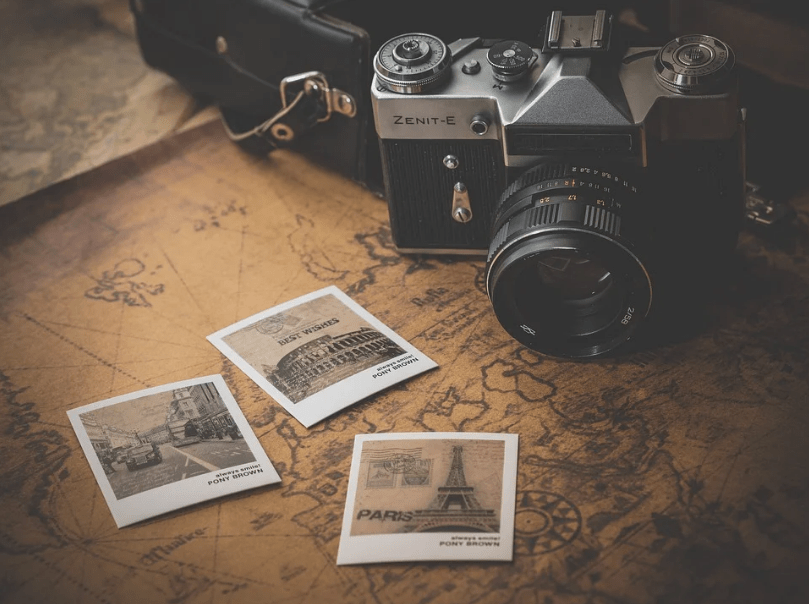The introduction of digital photography has resulted in an increase in photography as a creative art form and introduced it as a career choice. Even though it might sound easy, but in reality, it requires a lot of practice.
To create a name for yourself as a professional photographer, you should be talented, skillful, tech-savvy, and have good marketing skills. You should also have a passion for photography and be self-motivated to step into this field; only then can you become an expert.
Professional photographers are skilled; they also have the endurance to work long hours, compete fiercely due to market demands, and run their business as open-minded entrepreneurs.
Steps for Becoming a Professional Photographer
1. Starting with Clear Goals in Mind
Professional photography is the right mix between creative passion and entrepreneurial instincts. Before you start your photography career, focus on creating goals and what it means to be a good photographer, just like you would when you dive into any other field. To see if you are ready, you should be able to answer the following questions easily:
- What motivates me?
- Am I willing to start small and endure on my own?
- Can I work alone as a professional photographer?
- Which photography specialty niche piques my interest?
- What are the voids that I can fill in my local area?
- How can I improve my skills?
What value will I be offering to my clients? 2. Finding the Right Answers
You’ll be able to get answers to your questions by doing some research, attending photography events, exhibitions, and seminars. You will meet many photographers at these events and learn so much from them directly. In addition, you can become a member of several online photography communities. Some of the questions can also be answered by finding proper guidance and an expert in photography.
The rest of the skills will develop over time and with experience.
3. Polish Your Basics
To become a professional photographer, you must first understand the basics of photography. You should spend some time figuring out your camera and lenses thoroughly. Ensure to experiment with various settings like shutter speed and exposure to see if you can broaden your creative capabilities.
Moreover, get familiar with all your equipment and know everything about them. Don’t forget to brush up on your editing skills as well. The advancements in digital photography have resulted in more powerful editing tools like Adobe Photoshop and Lightroom. And if you don’t master them, you won’t be able to become a true professional in this field.
4. Knowledge of Photography
Professional photography can bring a lot of value to your job, skills, and experiences. Some photographers might have studied at prestigious schools, universities, or design institutions. In reality, the main things a photographer should have are keen eyes, lots of creativity, and technical skills.
A good training course can also be beneficial for building skill sets. Photography is one of the few occupations in which no formal education is necessary or required. You can learn, practice, and work on your skills without attending any education institute or getting a license for it. The main goal is to polish the skills and get to know more about photography.
5. Take Online Courses
If you’re a full-time working employee, you can choose from several online photography courses that can help you teach the basics of photography. While the best ones are paid, there are several free online courses that you can take.
You can take online courses whenever you have spare time and develop your photography skills. Furthermore, you can also participate in photography workshops to create a solid portfolio, which will serve as a foundation for your career as a professional photographer.
6. Intern For a Professional Photography Firm
If you’re an aspiring photographer, keep an eye out for networking opportunities with other professional photographers. It is essential to improve your social skills; because a professional photographer should have technical skills and excellent communication skills. Look for opportunities and apply for a photography firm as an intern or assistant to gain hands-on experience.
The key is to get professional experience by applying what you have learned in a more hands-on situation in real life. And you should know how to deal with clients, as that forms the basis of any photography business. Don’t be afraid to get feedback on your work; you will eventually get experienced and better over time.
7. Find Your Focus Area
Do you wish to capture portraits, vacations, weddings, fashion, take on conceptual high art photography, documentary, or commercial work? Study the niche in which you would like to specialize.
Here, all your knowledge and experiences will help you further improve your art and techniques of photography while also giving you an idea of the type of photographer you’re meant to be. Now all that’s left is to start exploring your style, find your niche, and focus on the genre/photography style you prefer.
8. Start with Economical Equipment
While you will need the necessary equipment to take high-quality photographs, you don’t have to go overboard and buy every fancy gear that you can find. You can start small by purchasing used equipment in good working condition or slightly older cameras or lenses for starters and gradually invest in a high-quality DSLR camera.
You don’t have to get the most expensive camera right off the bat; some photographers believe that learning photography by using an SLR camera is much better than learning with a DSLR.
9. Choose the Right Equipment
Make sure to purchase the right equipment for the kind of photography you want to pursue. Buying lenses and other equipment is always an area where people often overspend and get the wrong ones. Hence choose your gear carefully so that it can help you in your preferring settings.
10. Practice Makes a Man Perfect
If you have followed the first few tips, then at this point, everything should fall into place. What’s left is to improve your skills—practice as much as possible with different areas of your specialty
Take pictures every day as it is the only way to improve what you’re doing. Create a work schedule as it helps in managing your projects. You can start a 365-day project and create boards on different sites to showcase your best shots that fit in different genres.
11. Build Your Photography Portfolio
The best tool in your arsenal for becoming a successful professional photographer is your portfolio. Having an excellent portfolio will help you grow because all the potential clients will see your work talent and assess it based on your portfolio. Therefore, choose your best images that demonstrate the scope of your work – make sure your portfolio attracts the clients.
12. Create Your Online Presence
It is essential to create your online website to gain exposure, reach out to clients, and give your work the exposure it needs. When people are searching for a professional photographer, your website can be your window to the world.
It will create new opportunities for you and help you get projects outside your network and the local area. The website, branding, and content should reflect the type of job you specialize in for attracting suitable clients. You can learn from other top photographers who are showcasing their portfolios.
13. Set a Price For Your Services
To set prices for your services, make sure you’ve assessed all of your input costs and profit margins. Discover the rates of the best professional photographers in your area and field, but keep in mind what you can offer as well. Be adaptive and set a price for your services.
To get jobs, don’t undercut your competition too much, but also be mindful of overpricing and losing business.
14. Market Your Skills
Once you’ve created your web portfolio, you’ll need to invest time in marketing yourself. You can advertise yourself in several different ways. The more you sell your skills, the more exposure you’ll get, and the more exposure you’ll get, the more clients you’ll get. As a result, your business will go up, and people will start noticing you more and more.
You can gain exposure by entering photography contests, attending local trade shows, and emailing potential clients about your services. You can also be active on social media, networking and building clients, pitching for suitable openings in your industry, and being open to collaborations.
It All Comes Down to Practice and Experience
It takes a lot of time and years of practice to become a professional photographer takes. You have to learn many things before making a name for yourself and considering yourself an expert. The more you develop your skills and expertise in the field, the more recognition you will get.
Also, never forget to learn new things because the world of photography is ever-evolving, so you must too.


